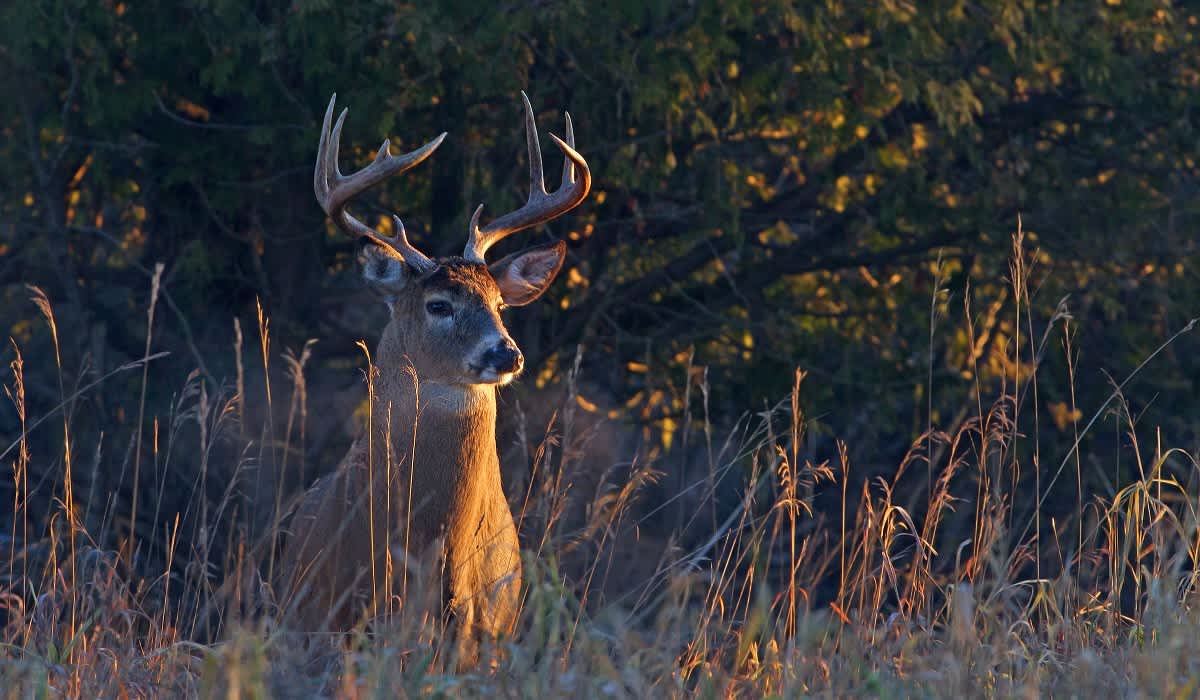5 Simple Rules for Hunting Early-Season Cold Fronts
OutdoorHub Editor: Keenan Crow 10.08.20

Do you remember the first time you went out hunting during the rut? I don’t know if it’s just all the hype built up for this “magical” time of year, or what, but there’s a certain energy in the woods you can actually feel around you upon arriving to your treestand, and it’s something whitetail hunters eagerly wait for all year round. But there’s another special time to be in the woods that takes place before the rut, and I’d argue it makes for just as good – if not better – hunting conditions. I’m talking about the early-season cold front.
Now, depending on where you hunt and which date your opening day lands on, “early season” is often considered to run through the first two or three weeks of October. So if you’re hunting in Michigan (like myself) where the archery season doesn’t open until October 1, you better be tuned into your weather app (and DeerCast) and ready to clear your schedule for a block of days surrounding any cold fronts moving through during this time. Let’s go over some other simple rules to keep in mind whenever you’re hunting early-season cold fronts:
Formulate a “Front Ready” Game Plan
First off, there’s no one specific cold front that’s going to get deer up on their feet, so you’ll want to try and hunt as many cold fronts as you can. Of course, you’re relying a lot on the weather here, so be patient! It can be tempting to go out and sit for an evening because it’s warm and comfortable for YOU, but you’re also risking “contaminating” the area with your scent. Instead, try to formulate a game plan for when the perfect conditions do roll through so you’re ready at a moments notice. This leads to my next tip..
Play the Wind
If you don’t take wind direction into account when setting up stands during the summer, you should probably start now. You might get lucky once or twice and catch up with a buck who is still locked into his zero-pressure summer patterns, but all of that can change in an instant. So play the wind more than ever, especially now.
When cold fronts start rolling through, the wind direction you’ve been used to all summer is inevitably going to shift to a more northerly direction in most cases. And if you don’t have a stand set-up in place for these conditions, you could be in for a world of trouble – or a very slow hunt to say the least.
Hang-and-Hunt
Over the years, this has become my favorite way to hunt. I always loved searching for new places to hang a treestand, and there’s nothing like hunting a new location for the first time. Being adaptable is key when you’re on the hunt for a mature buck, so don’t be afraid to get mobile and try to make something happen! If you don’t have one laying around the garage, pick up a portable stand like a hang-on treestand or a climber and head out on a “hang-and-hunt” mission.
This run-and-gun style allows you to venture into an area you’ve had a hunch about all summer, or simply setup on the other side of a food plot with a new wind direction. These little tweaks is all it takes to increase your odds of arrowing an early-season buck.
Hunt the Opposite Side of a Cold Front
When the weather breaks and you see a slight increase in temperatures on the horizon, don’t get down. Let’s say the weather man is calling for temps to rise 10 degrees or more in 24 hours. This is an excellent window to hunt during the afternoon and evening right before the increase. Given this scenario, there’s a solid chance the passing front will also cause the barometer to sky rocket.
Putting the Puzzle Together
If you haven’t caught on already, deer hunting involves a lot of problem solving and often feels like trying to solve a very complex puzzle. To have success in the deer woods, you want to try and stack the odds in your favor as much as possible, which means putting as many “puzzle pieces” together as possible. You can accomplish this by scouting, hanging trail cameras, shed hunting, and with the data you collect on your own each time you climb up into your stand. With each and every little puzzle piece you’re able to put together leading up to a hunt, the closer you are to finding yourself at full draw with your target buck in your sights.

